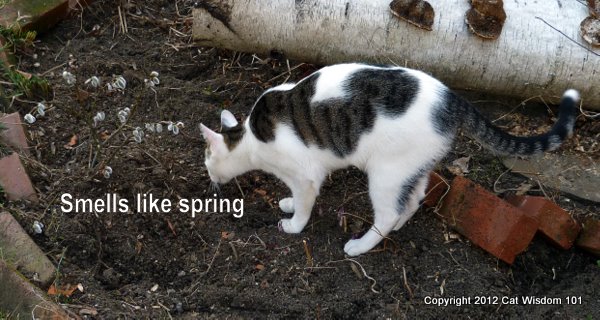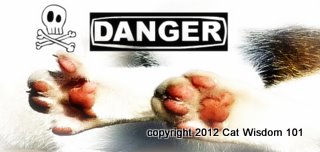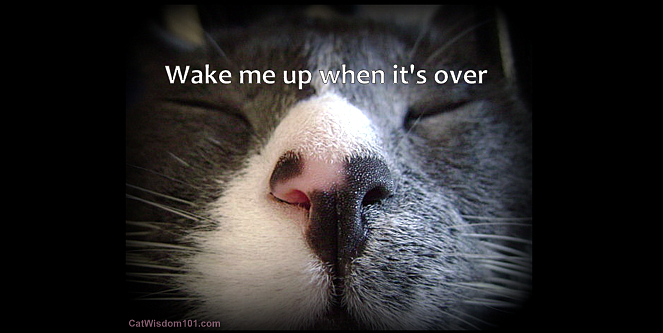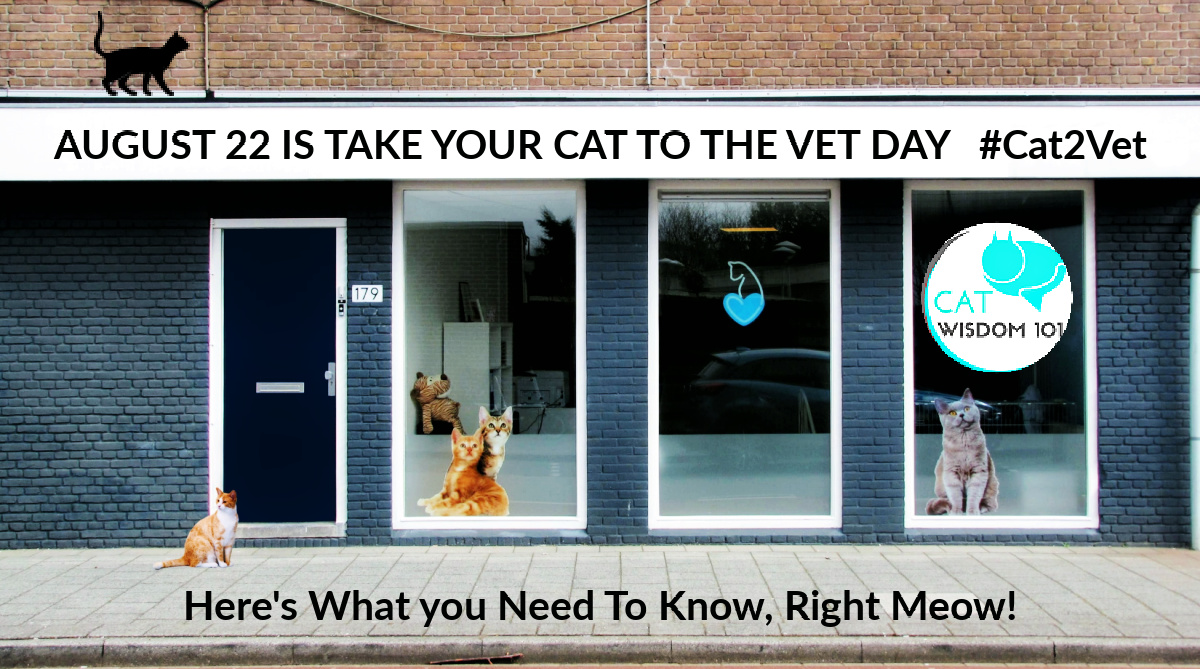Vet 101: Safe Spring Cleaning
It’s Pet Poison Awareness Month and a cat’s delicate pads can be prone to many hazards. We’re back with Vet 101 Q & A with vet Dr. Rich Goldstein to answer questions about your kitty with his signature warmth, wit and wisdom.
I’m ready for spring cleaning but worried about my cats stepping into something they shouldn’t. Any tips? Is it hype or are those natural type cleaning products really safer for cat’s paws?
It’s time for March Madness! To some, that may bring cheers for college basketball (Go Big Red!). To some, it brings thoughts of shorts and flip flops on the horizon (yeah warm weather!). And to some, it brings the excitement of … Spring cleaning! (OK, maybe “excitement” is too enthusiastic a term for Spring cleaning, unless you are Monica from “Friends”). For those who will be partaking in the annual “scrubbing of the grime” and “tossing to the curb”, it seems appropriate that March has also been designated by the ASPCA as Pet Poison Awareness Month.

Many household items, ranging from floor cleaners and disinfectants to plants and foods, can be toxic to our pets. It’s important to be aware of them, and what to do if there’s exposure. Here are a few tips to keep in mind:
- Always read the labels on cleaning products to see what it says about exposure to pets. Most will recommend keeping pets away (i.e. in the other room) until the product has completely dried. Any cleaning product, even pet-safe products, can potentially cause skin irritation (if walked upon), or stomach upset (if ingested), or respiratory symptoms (if inhaled). Best to keep Fluffy out of the room, and ventilate the room until the products are fully dry and aired out.
- If your kitty does come in contact with a cleaning solution, immediately wash the paws in warm water with a mild dish soap (like Dawn or Joy or Palmolive), rinse off the soapy water completely, and dry the feet thoroughly.
- Store household products in cat-proofed cabinets when not in use.
- Put together a Poison Safety Kit to keep in your house (right next to the First Aid Kit that you have!). Among the items it should include are:
- Fresh bottle of 3% hydrogen peroxide, with a bulb syringe (to induce vomiting – but only on the advice of poison control or your veterinarian)
- Grease-cutting dishwashing liquid (like Dawn, or Joy, or Palmolive) (to wash feet and fur)
- A can of soft cat food
- A soft towel
- A bottle of saline eye flush and artificial tears (to protect the eye after flushing)
- Rubber gloves
- Tweezers
- The number for your veterinarian, local emergency clinic, and Poison Control
- The ASPCA has one of the finest Animal Poison Control Centers in the country, available 24-7. Visit their website at more advice at ASPCA
- or call 888-426-4435. There is a $65 consultation fee for this service. You can also download a list of toxic household items for free list of poisons/hazards
The ASPCA has a cool interactive calendar this month on Facebook with a daily feature of what poisons might be lurking in your home.
A clean house is a happy house. But, more importantly, a safe kitty is a happy kitty. Let’s be careful out there!
Editor’s Note: If you are eco-conscious there are many natural products on the market that are safer for the environment but keep in mind natural can still be irritating for delicate paws. There are seven pads on each cat’s front paws and five pads and each hind paw. My tip for cleaning non-wood floors is using a steam cleaner. It’s a powerful clean which uses no cleaning product except water.





12 Comments
Pingback:
Oui Oui
Take the easy way out & don’t clean! (Just kidding!) Thanks for the good information. One of these weekends its carpet steam cleaning time. We kitties just dread that.
meowmeowmans
Wow, what great information! Thank you!
Kathy Thompson
Love the info! You can never know too much and it always pays to be reminded about the dangers to your fur babies! Thanks for another purrrrfect Vet 101.
Luvs to all Skeeter and Izzy >^”^<
boomermuse
Thanks for your feedback!
Abby
CAn’t ever be too safe!
purrs
>^,,^<
♥Abby♥Boo♥Ping♥Jinx♥Grace♥
Caren Gittleman
I don’t use a steam cleaner either but I am careful with what I DO use.
Super important info!
CATachresis
Good info as always! When you said “spring cleaning” my immediate reaction was “what’s that?” lol
Marg
Well we just use a broom and some good ole elbow grease to get things clean around here. We don’t have the green papers for a steam cleaner. Those are some mighty good points though. Take care.
Brian
Great info! We use steam to clean to for that very reason!
Pam Kimmell
Super info Layla….thanks for sharing. I’ll be sure to remember these tips when I begin the old Spring cleaning regime…..Sam usually runs and hides when I do that so at least he won’t be “underfoot” !!
Pam
Margot Core
I love my steam cleaner; it really makes for peace of mind.